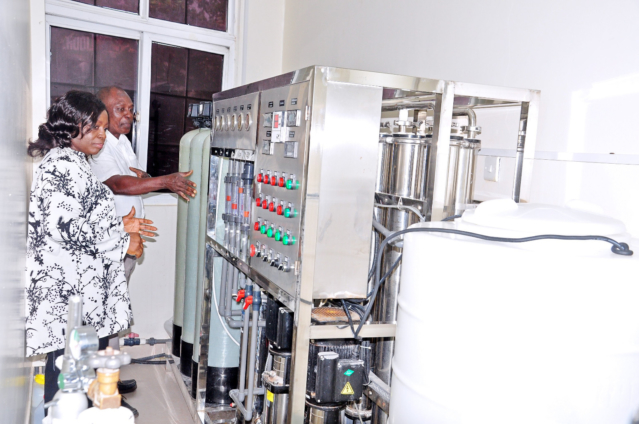The National Health Insurance Authority (NHIA) has initiated processes to absorb the cost of dialysis for kidney patients on the Health Insurance Scheme.
The Authority, through its regional offices, is currently collecting data from all teaching hospitals where dialysis is done, for feasibility assessment for further action.
Mr Fred Appiah, the Central Regional Director of NHIA, who disclosed this to the Ghana news Agency in an interview on Friday, said the move was in response to concerns and appeals from kidney patients in the country.
He said this on the sidelines of a blood donation exercise to help stock the National Blood Bank.
The gesture, which forms part of activities marking the Authority’s 20th Anniversary celebration, is targeted at mitigating the incidence of blood shortage at the various blood banks and its attendant preventable deaths.
He said his office had already submitted data gathered from the Cape Coast Teaching Hospital (CCTH) to the Head Office.
” I believe that once we are done with the data collection, there will be positive news that we will consider adding dialysis onto our package,” he said.
“Looking at the time they gave us, I know management will work on it within the shortest possible time and give the nation feedback.”
The cost of dialysis in Ghana and the difficulty in assessing it has caused public outcry in the past few weeks.
An attempt by the Korle Bu Teaching Hospital (KBTH) to increase the cost of dialysis was strongly resisted by the public, who saw that move as a death sentence for most kidney patients.
Some 19 patients reportedly died after KBTH closed its renal unit for some weeks over indebtedness to the facility.
Mr Appiah indicated that the assessment would determine whether the Authority would absorb the full cost or part of the treatment.
He said the National Health Insurance Scheme (NHIS) covered about 95 per cent of diseases in Ghana, with more than 540 medicines.
Given the fact that they kept on adding more, there was the need to expand the resource base to absorb more conditions, he said.
Asked whether the addition of kidney treatment to the Scheme would necessitate an increase in the premium paid, he said it was likely but that would not be enough.
“Premium paid from the informal sector only constitutes 4.5 per cent of the revenue. So even if we move from the current average fee of GHC30.00 to GHC50.00, it may move from 4.5 per cent to about six per cent but it will still not be enough.”
Rather, the Government should increase the funds allocated to the Authority to achieve a sustainable health insurance.
“If we receive all the taxes and the insurance component of it, at least, we will be dealing with all of these packages.”
Latest Stories
-
Ancelotti’s first game as Brazil boss ‘special’ despite Ecuador draw
4 minutes -
Makers and Partners leads planting exercise at GAF Critical Care and Emergency Hospital
9 minutes -
OSP lied about Ofori-Atta’s medical report – Frank Davies claims
19 minutes -
Defence Minister welcomes Northern chiefs in Central Region, praises their support
25 minutes -
Ghana’s most potent weapon against corruption is OSP – Kissi Agyebeng
36 minutes -
World Environment Day 2025: A call to eliminate plastic pollution in Africa
39 minutes -
Eid al-Adha celebration: Mahama prays for global peace
44 minutes -
Environment Minister calls for attitudinal change to end plastic pollution
45 minutes -
NAPO urges politicians, public office holders to embrace accountability
45 minutes -
Finance Minister hails outcome of National Economic Dialogue
55 minutes -
Ishmael Yamson appeals to Mahama to institutionalise National Economic Dialogue
57 minutes -
Bank of Ghana expands gold reserves amid global economic volatility
1 hour -
Sunda International donates to Eid Al-Adha 2025 celebrations
1 hour -
KIVO donates to Eid Al-Adha 2025 celebrations
1 hour -
Ken Ofori-Atta is not sick, he’s playing hide and seek with OSP- Tanko Computer
2 hours

